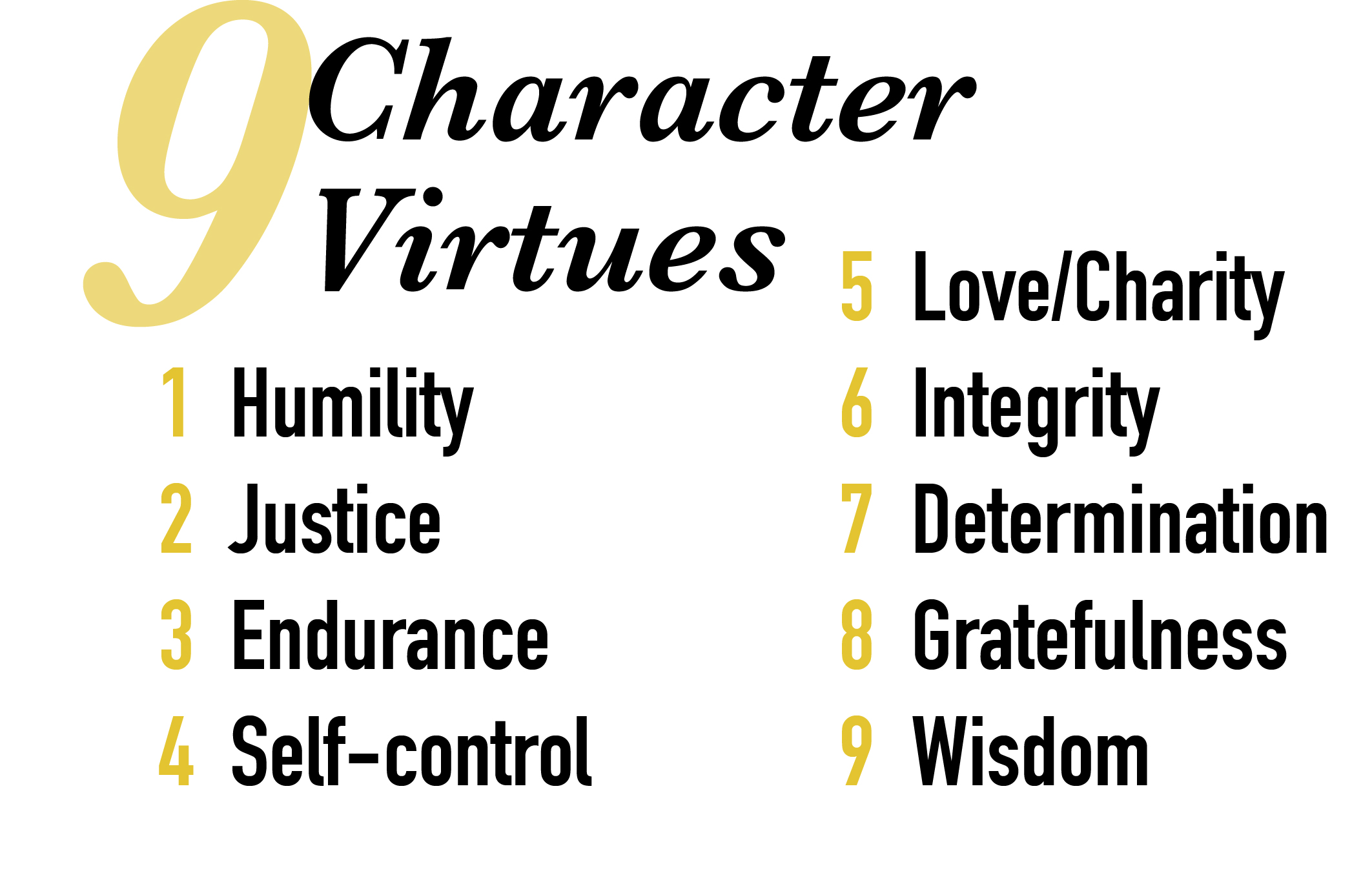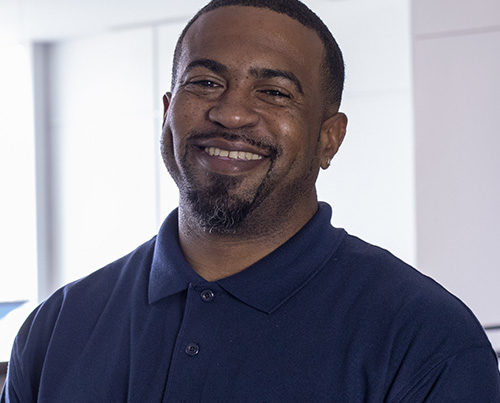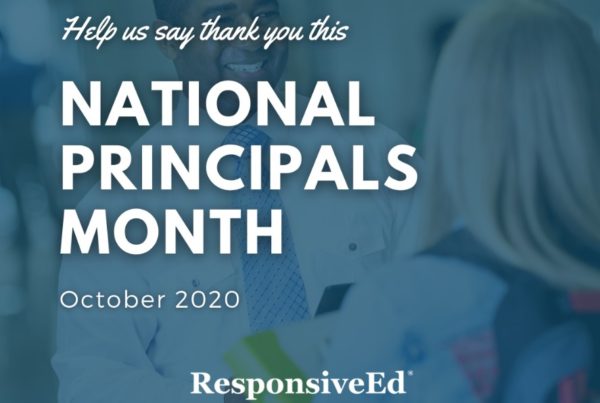ResponsiveEd recognizes that success demands academic knowledge, which is why ResponsiveEd schools promote a knowledge rich curriculum, but developing the personal traits that guide and motivate high quality outcomes is equally important. It is for this reason that every ResponsiveEd school places a high priority on building character. Throughout the company, Character First Education is the engine that powers students’ growth into productive and contributing citizens.
What is Character First Education?
Character First Education is a character-based leadership development program that provides materials for teaching character education. Their tools are based around 48 character traits. ResponsiveEd has organized the 48 character traits into nine core virtues. Schools will focus on a different virtue each month of the school year.
What is a virtue?
To refer to someone as virtuous these days is almost a derogatory way of saying that the person thinks he or she is perfect. But virtue in a classical sense refers to what a good person does. This is how Aristotle taught virtue, and it is how our school leaders do as well. Virtue is about taking action that is ethical and considers others and outcomes. There are both personal and civic virtue. One relates to how we act in personal situations and the other relates to how we act in the context of our communities.
Why is it important for the classroom?
Students are always learning. When they are not exposed to positive values, they will learn negative values. Many of the problems that keep students from reaching their potential, such as bullying, disrespect, cheating, tardiness, vandalism, profanity, and drug abuse, are issues of character. By emphasizing theses nine virtues we hope to empower students in a way that improves student achievement, school safety and, ultimately, our nation.
What are our Nine Core Virtues?
- Humility: The inner strength to put others before ourselves; its quality of being modesty, respectful, and never arrogant, rude or even self-abasing.
- Justice: Respecting the rights of others. Taking personal responsibility to uphold what is pure, right, and true.
- Endurance: To do what is right in the face of difficulty. The inward strength to withstand stress and do my very best.
- Self-control: The ability to govern ourselves. Rejecting wrong desires and doing what is right.
- Love: Love goes beyond justice; it gives more than fairness requires. Love is willingness to sacrifice for the sake of another.
- Integrity: Adherence to moral and ethical principles; soundness of moral character; honesty. The state of being whole, entire, or undiminished.
- Determination: Hard work – purposing to accomplish right goals at the right time, regardless of opposition.
- Gratefulness: It is an act of the will- you choose to be grateful – you choose to be thankful. It moves us to count our blessings every day.
- Wisdom: Making practical application of truth in daily decisions.
Why these 9 virtues?
48 character traits are a lot to remember and can overwhelm students with too much information. ResponsiveEd also found that the longer list really could be summed up by the nine listed above. Each month during the 2016-17 school year, our teachers will focus on a single virtue in an organized way, and by the end of the year students will have learned and practiced all nine virtues. Each of the nine core virtues are also linked to the Seven Habits (http://www.theleaderinme.org/the-7-habits-for-kids) that our schools also teach.
How are the 9 Core Virtues Taught?
This year is the first year we are introducing an integrated approach to the nine core virtues. Directors, teachers, and staff are trained on the implementation of the virtues in how they teach and create a school atmosphere. Character First Education provides us with materials from posters to books on character. The curriculum also has the core virtues built into daily lessons. From writing exercises and literature to crossword puzzles and coloring pictures students across grades will daily encounter the nine core virtues.




